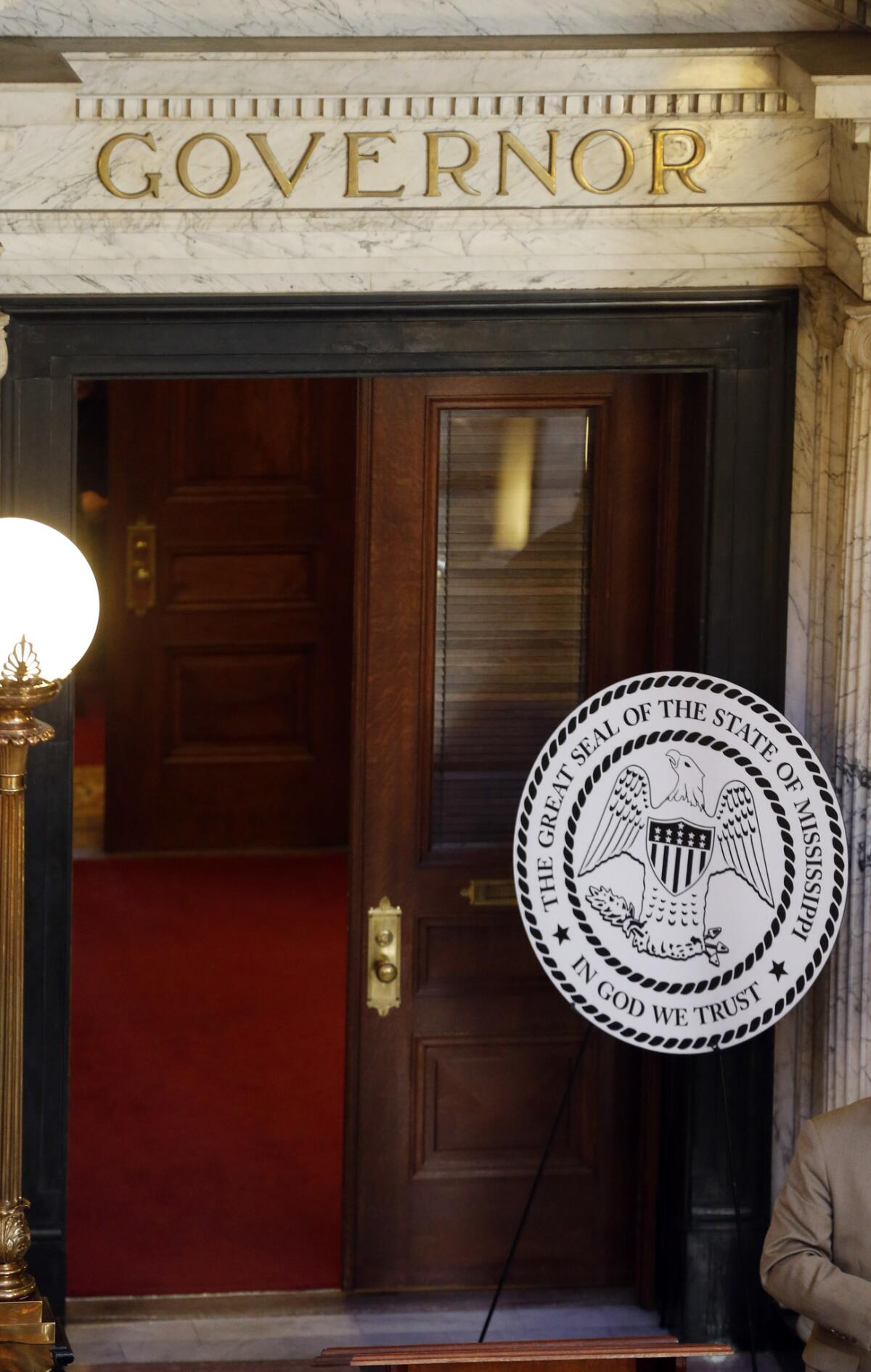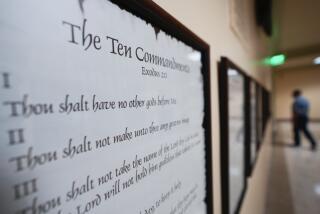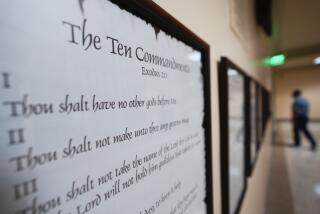Religious freedom bill passes in Mississippi; gays worry

Mississippi lawmakers have approved a bill that would allow citizens and businesses to challenge laws they see as substantially in conflict with their religious beliefs.
The bill, in the hands of Gov. Phil Bryant on Wednesday, would put into place a law similar to what Arizona has on its books -- and had sought to expand as part of a controversial proposal that was recently vetoed by Gov. Jan Brewer.
Several other states have considered similar religious freedom bills this year. Each has been criticized because it could pave the way for businesses to legally refuse to serve gays and lesbians.
In Mississippi, some supporters and critics of the bill said they were somewhat satisfied that the measure was designed in a way that limited opportunities for discrimination.
INTERACTIVE: Religious freedom vs. gay rights: What’s happening in 10 states
The bill was amended several times in recent weeks as gay rights supporters lobbied lawmakers and brought on stars, including former ‘N Sync singer Lance Bass, to boost their cause. The second half of the bill adds the phrase “In God we trust” to the state seal, which features an eagle with a shield.
But the thrust of Senate Bill 2681 says no law should impose a “substantial burden” on someone’s “exercise of religion.”
For example: A healthcare worker could use the law to help defend his or her decision in court to deny fertility treatments to a lesbian couple because it would be in conflict with the worker’s religious beliefs, Eunice Rho, advocacy and policy counsel with the ACLU, told the Los Angeles Times.
The government would then have to prove that there is a “compelling” reason, with no other alternatives, to enforce an existing law that prohibits discrimination in healthcare services.
House Speaker Philip Gunn called the bill “responsible and narrow in focus.”
“The goal of the House, from the beginning, has been to craft language that protects the religious freedoms for all and prevents discrimination against anyone,” he said in a statement, noting that the measure resembled a 21-year-old federal law.
Tony Perkins, president of the conservative group Family Research Council, said, “The Legislature gave strong approval to a bill that declares that individuals do not have to trade their religious freedom for entrance into public commerce.”
The ACLU said it was hopeful that any discriminatory actions taken after passage of the measure, which is expected to be signed into law by Bryant, would be barred by the courts.
Still, the civil rights group had wanted language in the bill to explicitly say that the law could not be used to undermine anti-discrimination statutes. Lawmakers vowed that would not happen and refused to put the language in the bill, Rho said.
“The bill that passed was a huge improvement, but we can’t say this is ideal,” Rho said.
The group Human Rights Campaign expressed worry that businesses could use the law to sue for exemptions from any anti-discrimination bills passed in the future.
“Just as we’ve seen in other states, this bill is bad for business, bad for the state’s reputation and, most of all, bad for Mississippians,” Sarah Warbelow, Human Rights Campaign’s state legislative director, said in a statement urging Bryant to veto the bill.
Follow LATimes National on Facebook
ALSO:
Washington landslide death toll rises to 29 as search continues
Bao Bao outside for first time at National Zoo and is not shy about it
Supreme Court lifts overall limits on congressional campaign donations
More to Read
Sign up for Essential California
The most important California stories and recommendations in your inbox every morning.
You may occasionally receive promotional content from the Los Angeles Times.









